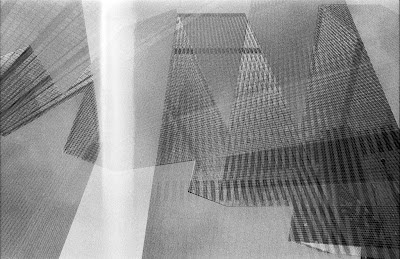Sociologia
 [Nova Iorque.
[Nova Iorque.
Rafael Bertelli]
fonte: http://www.aacc.org/publications/clin_chem/ccgsw/Pages/default.aspx
.
- Programa De Curso: Redação De Artigos Científicos
[Calvin & Haroldo, Bill Watterson] PROGRAMA DE PÓS-GRADUAÇÃO EM CIÊNCIA POLÍTICAPROGRAMA DE PÓS-GRADUAÇÃO EM POLÍTICAS PÚBLICASCódigo: Tópicos especiais em metodologia IProfessor responsável: ADRIANO CODATOSemestre/Ano: 2 / 2014 Tipo:...
- Programa De Curso: Métodos De Pesquisa Científica Em Ciência Política (2/2013)
[Antonio Maluf] Ementa O campo teórico da ciência política. O campo institucional da ciência política. O campo de pesquisa da ciência política. a conduta na pesquisa. Técnicas de pesquisa e de elaboração de projetos. Horário Segunda-...
- Call For Papers - Ipsa - São Paulo 2011
[São Paulo, 1990.Cristiano Mascaro. Pirelli/MASP] the IPSA-ECPR joint conference Whatever Happened to North-South?, hosted by the Brazilian Political Science Association at the U. of Sao Paulo. The conference will be held from February 16 to 19, 2011....
- Writing A Syllabus
[Stephens College Nina Leen. Life] By Howard B. Altman, University of Louisville and William E. Cashin, Kansas State University from IDEA Paper No. 27, Center for Faculty Evaluation and Development A Divison of Continuing Education, Kansas State...
- The 2009 Ig Nobel Prize Winners
[New Type Brassieres. New York, May 1949. Nina Leen. Life] The 2009 Ig Nobel Prizes were awarded on Thursday night, October 1, at the 19th First Annual Ig Nobel Prize Ceremony, at Harvard's Sanders Theatre. Later, on Saturday afternoon, October...
Sociologia
Clinical Chemistry Guide to Scientific Writing

Rafael Bertelli]
[os textos do Guia também estão disponíveis em português; fuce que você acha]
Clinical Chemistry is pleased to present the Clinical Chemistry Guide to Scientific Writing, a series of educational articles on how to design and write scientific research papers for publication. These articles will help authors, educators, researchers, training program directors, and other professionals write more clearly and effectively, thereby improving their chances for success. We encourage educators and training program directors to use them as a teaching aid, and provide a link to them on their own Web sites.
These articles are easy to read and humorous at times, yet are full of useful information and examples to illustrate important points. Because the articles will benefit anyone interested in scientific writing, we are making them available not only to subscribers, but to all scientists. Translations into Chinese and Spanish are available. We welcome your feedback and suggestions regarding aspects of the writing process about which you would like to learn more.
Full-text links to the Guide to Scientific Writing:
Part 1. The Title Says It All
Part 2. The Abstract and the Elevator Talk: A Tale of Two Summaries
Part 3. "It was a cold and rainy night": Set the Scene with a Good Introduction
Part 4. Who, What, When, Where, How, and Why: The Ingredients in the Recipe for a Successful Methods Section
Part 5. Show Your Cards: The Results Section and the Poker Game
Part 6. If an IRDAM Journal Is What You Choose, Then Sequential Results Are What You Use
Part 7. Put Your Best Figure Forward: Line Graphs and Scattergrams
Part 8. Bars and Pies Make Better Desserts than Figures
Part 9. Bring Your Best to the Table
Part 10. The Discussion Section: Your Closing Argument
Part 11. Giving Credit: Citations and References
Part 12. How to Write a Rave Review
Part 13. Top 10 Tips for Responding to Reviewer and Editor Comments
Part 14. Passing the Paternité Test
fonte: http://www.aacc.org/publications/clin_chem/ccgsw/Pages/default.aspx
.
loading...
- Programa De Curso: Redação De Artigos Científicos
[Calvin & Haroldo, Bill Watterson] PROGRAMA DE PÓS-GRADUAÇÃO EM CIÊNCIA POLÍTICAPROGRAMA DE PÓS-GRADUAÇÃO EM POLÍTICAS PÚBLICASCódigo: Tópicos especiais em metodologia IProfessor responsável: ADRIANO CODATOSemestre/Ano: 2 / 2014 Tipo:...
- Programa De Curso: Métodos De Pesquisa Científica Em Ciência Política (2/2013)
[Antonio Maluf] Ementa O campo teórico da ciência política. O campo institucional da ciência política. O campo de pesquisa da ciência política. a conduta na pesquisa. Técnicas de pesquisa e de elaboração de projetos. Horário Segunda-...
- Call For Papers - Ipsa - São Paulo 2011
[São Paulo, 1990.Cristiano Mascaro. Pirelli/MASP] the IPSA-ECPR joint conference Whatever Happened to North-South?, hosted by the Brazilian Political Science Association at the U. of Sao Paulo. The conference will be held from February 16 to 19, 2011....
- Writing A Syllabus
[Stephens College Nina Leen. Life] By Howard B. Altman, University of Louisville and William E. Cashin, Kansas State University from IDEA Paper No. 27, Center for Faculty Evaluation and Development A Divison of Continuing Education, Kansas State...
- The 2009 Ig Nobel Prize Winners
[New Type Brassieres. New York, May 1949. Nina Leen. Life] The 2009 Ig Nobel Prizes were awarded on Thursday night, October 1, at the 19th First Annual Ig Nobel Prize Ceremony, at Harvard's Sanders Theatre. Later, on Saturday afternoon, October...
